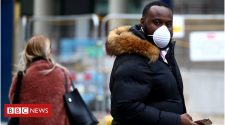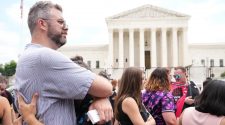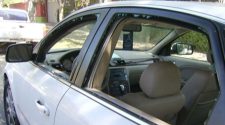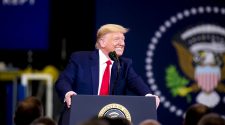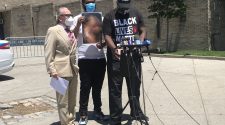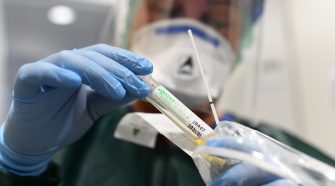India extends its lockdown to cover almost the entire nation of 1.3 billion.
The Indian authorities are grounding all domestic flights and putting most of the country, the world’s second most populous, in full lockdown.
The number of confirmed coronavirus cases in the country remains relatively low — about 420. But the government has steadily tightened restrictions, first ending all international flights and now grounding domestic ones, starting Wednesday at midnight.
In New Delhi, the capital, the front page of all major newspapers featured a full-page announcement outlining the new restrictions and citing the Epidemic Diseases Act of 1897. Food stores were supposed to be exempted, but in some neighborhoods the police ordered small grocery stores to close.
Prime Minister Narendra Modi posted an urgent appeal on Twitter on Monday: “Many people are still not taking the lockdown seriously,” he said. “Please, save yourself, save your family, follow the instructions seriously.”
The Fed says it will buy as much debt as it needs to cushion the blow for businesses.
The Federal Reserve said it would buy as much government-backed debt as it needs to keep financial markets functioning, and unrolled a series of programs meant to shore up both large and small businesses — a whatever-it-takes effort to cushion the economic blow of the pandemic.
“Aggressive efforts must be taken across the public and private sectors to limit the losses to jobs and incomes and to promote a swift recovery once the disruptions abate,” the central bank said in a statement on Monday, adding that the Fed was “using its full range of authorities to provide powerful support for the flow of credit to American families and businesses.”
The Fed this month resurrected a huge bond-buying program — last used in response to the 2008 financial crisis — saying that it would spend $700 billion on Treasury securities and $200 billion in mortgage-backed debt. On Monday, the central bank said it would not limit its purchases, instead buying “in the amounts needed to support smooth market functioning.”
Wall Street fell on Monday even after the Fed unveiled its expansive new bond-buying program. The S&P 500 was down about 1 percent in early trading.
Markets stumbled on the news that a political stalemate in the Senate had slowed a rescue plan for the U.S. economy. Senate Democrats on Sunday blocked action on an emerging deal to prop up the economy, halting the progress of a nearly $2 trillion government rescue package. They contended that the legislation failed to adequately protect workers or impose strict enough restrictions on bailed-out businesses.
Major indexes in Germany, Britain and France were lower, and most Asian markets also closed down.
Racing to save the sick, Spain’s health workers fall victim themselves.
“A nurse cannot work without protection,” Teresa Galindo, who leads a union that represents nurses in the Madrid region, said, adding that she never thought the health service’s resources “could be stretched so far to the limit.”
Videos shared on social media show dire conditions at hospitals in the region, with coughing patients lying on the floor or on beds in corridors, many hooked up to oxygen tanks, as overwhelmed health professionals shuffle past.
“There are people without rooms, sitting in plastic chairs for more than 30 hours,” Javier García, a union representative, told the newspaper El Mundo.
Hotels and exhibition centers are being converted into field hospitals. The aid organization Doctors Without Borders has set up a 100-bed unit on a university campus in Madrid, and the army is deploying to take patients to hospitals and alleviate the burden on the health sector.
Spain is also racing to cope with a shortage of tests, so the number of infected may be far higher than the reported caseload. Hundreds of thousands of new test kits will be handed out in the coming days, the authorities say, and health professionals will be the first to be tested.
Trump warns against letting the ‘cure’ become ‘worse than the problem itself.’
As public health officials and leaders around the world braced their populations for a struggle that could continue for months, President Trump signaled that measures to slow the spread of the coronavirus could have their limits.
“We cannot let the cure be worse than the problem itself,” he wrote on Twitter. “At the end of the 15 day period, we will make a decision which way we want to go!”
Early last week, the White House released guidelines — effective for 15 days — urging Americans to avoid gatherings of more than 10 people and recommending that people work from home, avoid unnecessary shopping trips and refrain from eating in restaurants.
Many states and cities have since imposed even stricter measures, with one in four people in America now under some form of restricted movement.
The point of locking down entire cities and nations has been to give health care systems time to gear up so they do not find themselves overwhelmed by a surge of patients. And as the number of known cases in the United States crossed 31,700, governors from multiple states warned that they were still not ready.
Mr. Trump said that major disaster declarations were in process for New York, California and Washington — the three states hardest hit by the virus — and that they would not have to pay for deploying National Guard units.
Mr. Trump also said he had directed FEMA to supply four large federal medical stations with 1,000 beds for New York, eight stations with 2,000 beds for California, and seven stations with 1,000 beds for the state of Washington. The stations for New York, to be built in Jacob K. Javits Convention Center in Manhattan, were announced earlier in the day by Gov. Andrew M. Cuomo.
Many state and local officials have pressed Mr. Trump to use his authority under the Defense Production Act to mobilize industry to manufacture scarce goods. At the news conference on Sunday, Mr. Trump defended his decision not to do so.
“Call a person over in Venezuela,” he said. “Ask them: How did nationalization of their businesses work out? Not too well. The concept of nationalizing our businesses is not a good concept.”
U.S. lawmakers try again on a $1.8 trillion stimulus plan.
Senators and senior Trump administration officials were scrambling on Monday to strike a deal on a $1.8 trillion measure to bolster the economy, after Democrats blocked action on the package on Sunday, demanding stronger protections for workers and restrictions for bailed-out businesses.
The vote on Sunday shook markets around the globe and threatened to derail bipartisan talks that had yielded substantial compromises over the outlines of the package, which is emerging as the largest economic stimulus measure in modern history.
“We need this to pass today,” Treasury Secretary Steven Mnuchin told the Fox Business Network on Monday, just before heading to Capitol Hill to meet with Senator Chuck Schumer, Democrat of New York and the minority leader, to try to cement a deal.
Mr. Mnuchin and Mr. Schumer met late into the night on Sunday after the failed vote, but did not come to terms.
The Democratic leader told reporters shortly after midnight that the bill as currently written would give bailouts to major corporations without accountability and that it would not provide enough funding to health care workers on the front lines.
“This bill is going to affect this country and the lives of Americans — not just for the next few days, but in the next few months and years,” Mr. Schumer said, “so we have to make sure it is good.”
He said he hoped to have a compromise bill ready on Monday.
Keep your distance, leaders warn, or there will be consequences.
From India to Germany to Australia, world leaders have begun taking a harder line with people who violate the strict measures put in place to limit the spread of the coronavirus.
“I don’t know what they’re not understanding,” Gov. Andrew Cuomo of New York said about New Yorkers ignoring social distancing guidelines on Sunday. “This is not life as usual.”
The U.S. surgeon general, Jerome Adams, warned on Monday in an appearance on NBC: “This week, it’s going to get bad.” He urged people in the country to stay at home.
Prime Minister Scott Morrison of Australia said on Sunday that if people didn’t comply with social distancing measures, he was ready to introduce “far more draconian measures,” after crowds thronged Australia’s beaches over the weekend.
“Do what is right for our country,” Chancellor Angela Merkel told people in Germany on Sunday, after introducing measures that limit groups in public to just two people, aside from families — at a safe distance. “Show reason and heart,” she said.
As increasingly drastic restrictions are introduced across the world, leaders are making it abundantly clear that while many people are complying, in order for social distancing to work, everyone has to limit interactions.
Local leaders in some Italian towns and regions have taken to the streets to demand that residents return home and called out those who fail to adhere.
Vincenzo De Luca, the president of the regional government of Campania, issued a threat in a video message to those planning to throw graduation: “We will send the police over, with flamethrowers.”
In some places, fines have been introduced for people who break the rules. In the German states of North Rhine-Westphalia and Rhineland-Palatinate, people who unnecessarily leave their homes can face fines of up to 25,000 euros, about $26,700.
Alain Thirion, a top security official at France’s interior ministry, told reporters in Paris on Sunday that the police had carried out checks on over 1.7 million people and that over 90,000 of them were in violation of a mandatory lockdown. Repeat offenders could face up to €3,700 in fines and six months in prison, under legislation passed on Sunday by France’s Parliament.
New York City region is now the epicenter of the U.S. outbreak.
A sharp increase in confirmed coronavirus cases in New York State on Sunday indicated that the state now accounts for roughly 5 percent of coronavirus cases worldwide.
The jump stemmed from both the rapid growth of the outbreak and a significant increase in testing in the state. Health officials emphasized that testing was revealing how quickly the virus had spread.
There are now 16,887 confirmed cases of the coronavirus in the state and at least 150 deaths. About 13 percent of the people who tested positive for the virus were hospitalized.
Moving to stem the crisis on multiple fronts, Gov. Andrew M. Cuomo pleaded with federal officials to nationalize the manufacturing of medical supplies and ordered New York City to crack down on people congregating in public. He suggested that some streets could be closed to traffic, allowing pedestrians more space.
The governor announced measures intended to prepare for a wave of patients, including setting up temporary hospitals in three New York City suburbs and erecting a large medical bivouac in the Jacob Javits Center on Manhattan’s West Side.
Already, hospitals across the New York region are reporting a surge of coronavirus patients and a looming shortage of critical supplies like ventilators and masks.
Mayor Bill de Blasio of New York said told CNN on Monday that hospitals had only “days” to get critical supplies before doctors will be unable to save the lives of those who might otherwise survive.
Chinese officials appear to disagree on whether to push a conspiracy theory about the U.S.
China’s ambassador to the United States sought to distance himself from a prominent Chinese government spokesman who has been promoting a conspiracy theory that the coronavirus was started by the United States, an unusual display of discordance at senior levels of the Chinese government.
The diplomat, Cui Tiankai, said in an interview with Axios on HBO that politicians should refrain from “very harmful” speculation on the source of the virus that has upended daily life and economies around the world.
Mr. Cui’s remarks contradicted the approach taken by his colleague Zhao Lijian, a spokesman for China’s foreign ministry, who has in recent days been tweeting unfounded theories that it may have been the U.S. Army that brought the epidemic to Wuhan, and promoting tweets suggesting that the United States was concealing cases of Covid-19 that had been misdiagnosed as the flu late last year.
In the interview with Axios, the Chinese ambassador, Mr. Cui, reiterated his criticism of people in the United States who were promoting unproven theories about the virus. “This is the job for the scientists to do, not for diplomats, not for journalists to speculate,” he said. “Because such speculation will help nobody. It’s very harmful.”
But he deflected questions about Mr. Zhao’s remarks, saying it wasn’t his job to explain the view of his colleague.
The fringe theories on the virus’s origins first came to the fore last month when Senator Tom Cotton of Arkansas claimed that the deadly coronavirus, which first emerged in Wuhan, was manufactured by the Chinese government. In a February interview on “Face the Nation,” Mr. Cui called such claims “crazy.” He said other rumors asserting that the virus had originated from an American military laboratory were similarly unbelievable.
Bad blood between the U.S. and China complicates efforts to get medical equipment where it is needed.
American front-line medical personnel are running desperately short of masks and protective equipment as they battle the coronavirus outbreak. China, already the world’s largest producer of such gear by far, has ramped up factory output and is now signaling that it wants to help.
Reaching deals won’t be easy. Increasingly acrimonious relations between Washington and Beijing are complicating efforts to get Chinese-made masks to American clinics and hospitals.
At heart, the two countries, which only recently reached a truce in President Trump’s trade war, have some similar problems. Both face harsh questions over their missteps in responding to the outbreak.
Washington and Beijing make handy foils for each other — and essential protective gear could get caught in the middle unless they reach an understanding.
The Trump administration is signaling it isn’t too proud to buy Chinese masks, gowns, goggles and other equipment. At the same time, said Peter Navarro, a senior Trump administration trade official, it will object to any Chinese effort to turn deliveries into fodder for propaganda that would bolster China’s image at home and abroad.
“My job at the White House right now is to help find whatever the American people need and buy it from wherever we can, and if we need to send a plane to go get it, we’ll get that done using the full force of government and private enterprise,” Mr. Navarro said in an interview.
The maker of an experimental drug says it will cut emergency access, as researchers race for a cure.
Some of the medications are used to treat other diseases, and repurposing them to treat Covid-19, the illness caused by the coronavirus, may be faster than trying to invent a new antiviral from scratch, the scientists said.
Among the drugs on the list was remdesivir, an experimental antiviral produced by Gilead Sciences that has been used in emergency cases to treat the coronavirus. But the company said on Sunday that it was suspending access to emergency requests for remdesivir, citing an “exponential increase” in such requests as the virus spreads through Europe and the United States.
As coronavirus cases have increased around the world, demand has overwhelmed “an emergency treatment access system that was set up for very limited access to investigation medicines and never intended for use in response to a pandemic,” the company said in a statement.
The list of drug candidates appeared in a study published on the website bioRxiv. The researchers have submitted the paper to a journal for publication.
Also on the list was chloroquine, a malaria medication that has been much in the news this past week, thanks to speculation about its use against the coronavirus — some of which was repeated by President Trump at a news briefing at the White House on Friday.
Dr. Anthony Fauci, the director of the National Institute of Allergy and Infectious Diseases, followed the president’s remarks with a warning that there was only “anecdotal evidence” that chloroquine might work.
A little joy in a difficult time.
It is reasonable to feel anxious and worried about the news. Today, we hope to offer you ideas for a small respite.
Reporting and research were contributed by Eileen Sullivan, Katie Robertson, Hari Kumar, Jeffrey Gettleman, Elian Peltier, Raphael Minder, Marc Santora, Megan Specia, Melissa Eddy, Jeanna Smialek, Ian Austen, Mariel Padilla, Thomas Gibbons-Neff, Katie Van Syckle, Jesse McKinley, Emily Cochrane, Jim Tankersley, Jeanna Smialek, Kate Taylor, Tiffany May and Mike Baker.


